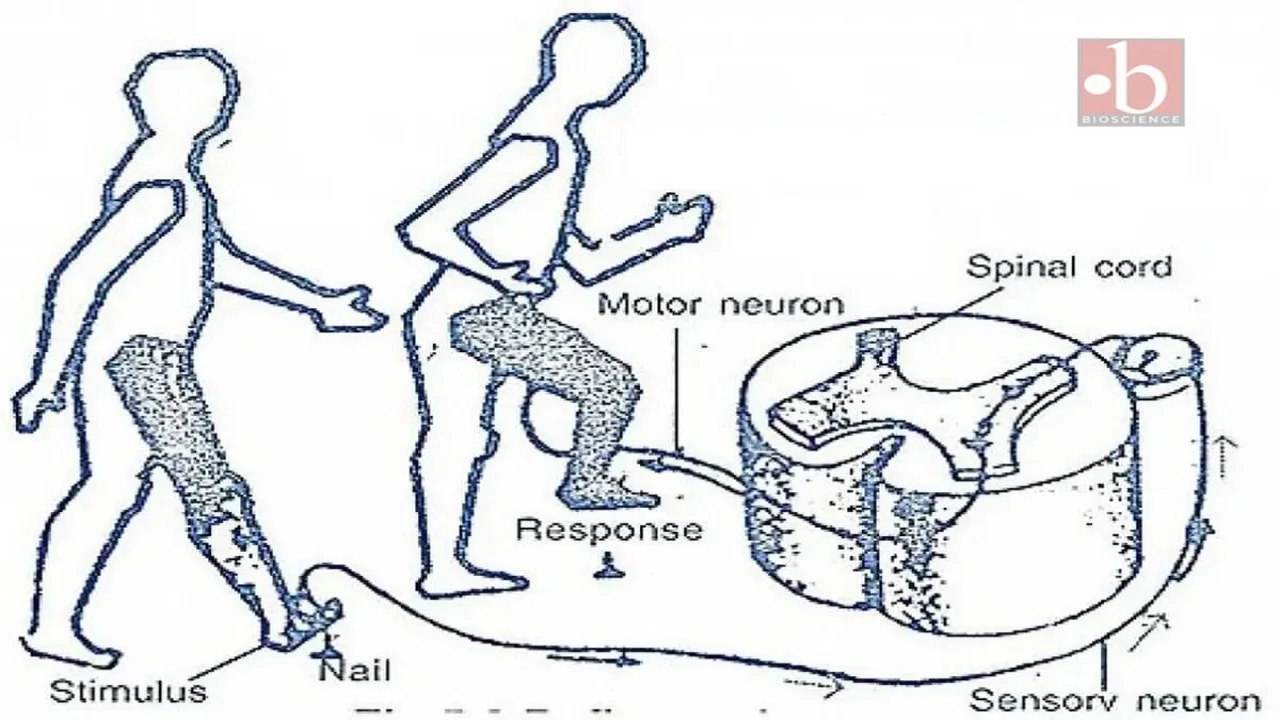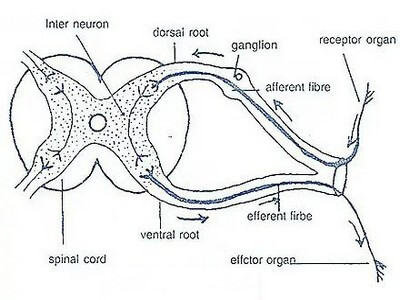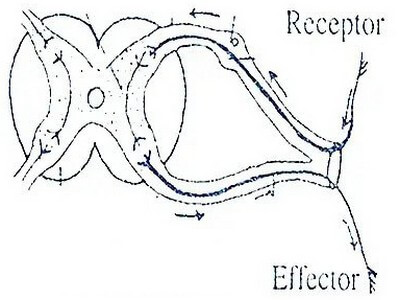Reflex Actions and Reflex Arc
Explore the efficiency of reflex actions and reflex arcs. Understand the neural pathways, spinal and cerebral reflexes. Discover the significance of inborn and conditioned reflexes for rapid, involuntary responses.

Reflex actions are innate, involuntary responses exhibited by organisms in reaction to specific stimuli. These actions occur without conscious thought or the involvement of higher brain centers, allowing for rapid responses to immediate threats or environmental changes. The pathways through which these reflex actions take place are known as reflex arcs. These neural circuits involve sensory organs, afferent and efferent neurons, and effectors such as muscles or glands. Reflex arcs can be categorized into spinal reflexes, which involve the spinal cord, and cerebral reflexes, which are mediated by the brain. Some reflexes are present from birth, known as unconditioned or inborn reflexes, while others are acquired through experience and are termed conditioned reflexes. This intricate system serves to safeguard organisms from harm and optimize their survival in dynamic environments.
Reflex Action
The voluntary activities that occur with out knowing or that occur involuntarily without the intervention of the centres of brain are called refiex actions.
Reflex actions are useful to animal because they bring about quick action in response to a stimulus. Many reflex action (spinal reflexes) relieve the brain from unnecessory work by taking care of minor activities and avoid harmful delay by not referring the stimuli to the higher centres of brain.
Reflex Arc
The flow of nerve impulse along a specific nerve pathway is called reflex arc. The path of nerve impulse in a reflex action is called reflex arc. The impulses can flow only in a single direction in a reflex arc are;
Sensory organ → Afferent neuron → Efferent neuron → Muscle or gland (effector)

The reflexes in which the response (motor impulse) is formed in the spinal cord are called spinal reflexes.E.g. :
- Immediate withdrawl of a hand from hot surface.
- Movement of patella when it strikes aganist hard object.
- Removal of nail when it is pierced into the skin of leg or hand.
The reflexes in which the response is formed in the brain are called cerebral reflexes. E.g.:
- Sudden closure of eyes when a strong light is focussed.
- Oozing of saliva on seeing sweets.
Some reflexes can be evoked even immediately after birth and need no previous encounter with the stimulus exciting it. For example, the taste of food causes salivation even in a new-born baby or even thouh the baby is tasting that food for the first time. The pupil constricts even if the eye is illuminated with bright light just at birth. Such reflexes are called unconditioned or inborn reflexes.

The reflex, acquired afterbirth by applying an indifferent stimulus before or along with the stimulus for an inborn reflex, is called a conditioned reflex or acquired reflex. E.g.: The sight or smell of food is a conditioned stimulus for salivation.
The information on this page is peer reviewed by a qualified editorial review board member. Learn more about us and our editorial process.
Last reviewed on .
Article history
- Latest version
Cite this page:
- Comment
- Posted by Dayyal Dungrela